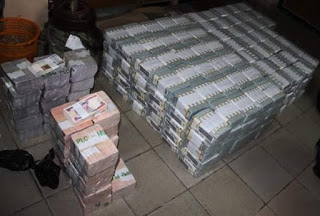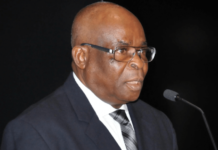Nigeria’s foreign exchange reserves rose to $30.8bn in April, the highest level since September 2015.

The increase could be attributed to a recent rise in global crude oil price, and proceeds of the country’s Eurobond, issued in march.
Data from the Central Bank shows that Nigeria’s forex reserves, stood at $30.31bn, a month ago.The increase could be attributed to a recent rise in global crude oil price, and proceeds of the country’s Eurobond, issued in march.
The country’s reserves have risen 18.1 per cent since the start of the year, but are still far off the peak of $64bn, achieved in august, 2008.
The reserves had in March hit the $30bn mark for the second time since President Muhammadu Buhari assumed office in May.
The reserves have experienced a steady day-on-day increase of between 2.30 and 2.75 per cent since January 5, 2017.
The last time the reserves crossed the $30bn mark was in July 2015 before it began to decline.
The reserves were affected by low crude oil prices across the world, which reduced the availability of foreign exchange and in turn, put pressure on the naira.
A production cut agreement between OPEC and non-OPEC members have since led to an upsurge in crude oil prices, which in turn have benefitted the reserves.
Since February 2017, the Central Bank of Nigeria, has been providing foreign exchange to banks to meet the tuition, travel and medical needs of customers, thereby reducing the pressure on the naira.
Channels TV











